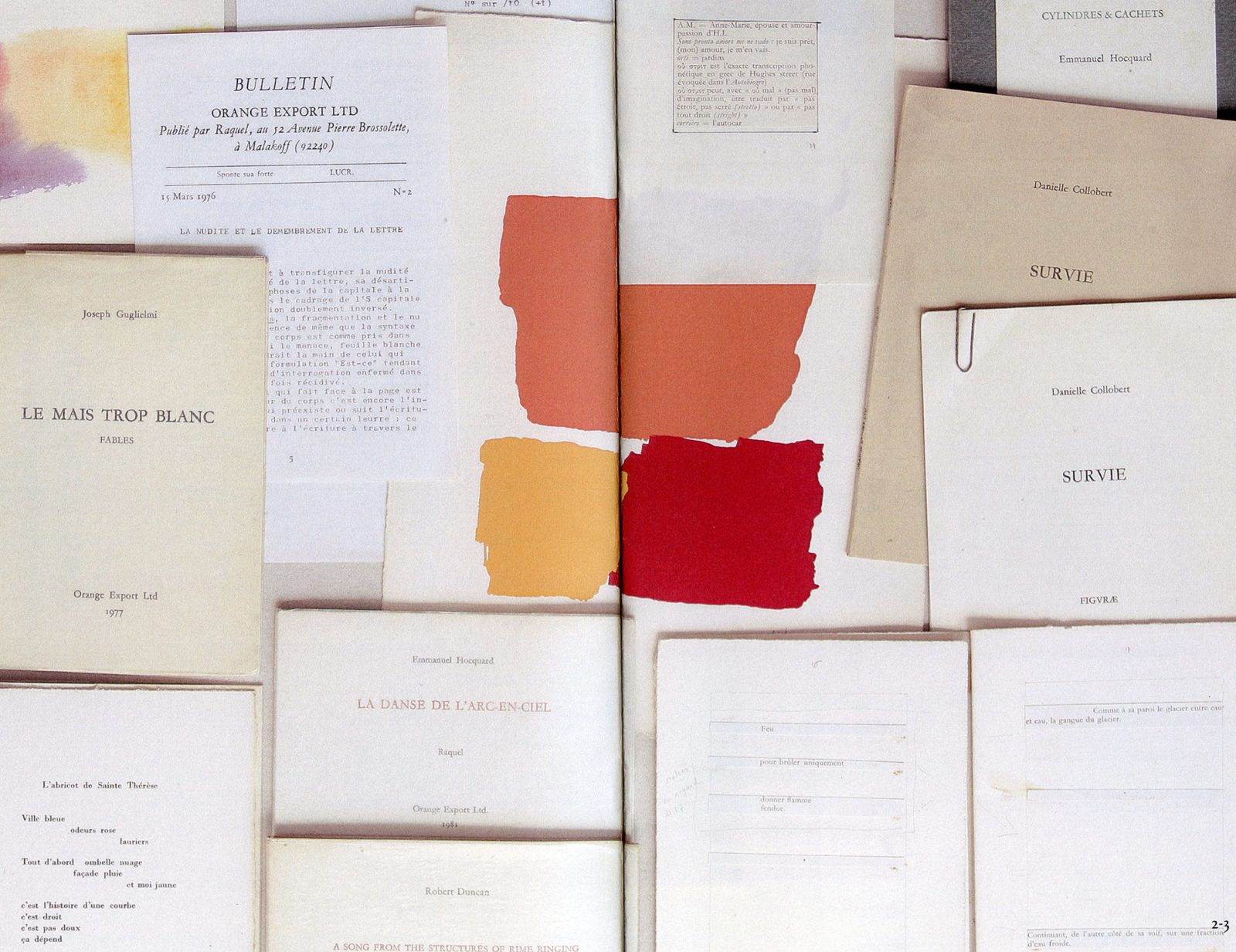ORANGE EXPORT LTD. 52, AVENUE PIERRE-BROSSOLETTE, MALAKOFF
5’
5’

Piles of papers and stacks of books on the worn-out parquet dotted with paint, stretched canvases leaning on walls, cans and pigment boxes occupying every inch of empty space between the age-old furniture, the smell of acrylic and turpentine compounding with that of smoke, coffee and other organic matter, the lively discussion between friends huddled on the narrow divan, the materiality of the century almost tactile.
The exuberant climate of the artists’ home studios of the 20th century has become a powerful image in our culture. From Gertrude Stein’s legendary 6th arrondissement salon, the favorite gathering place of the avant-garde to Andy Warhol’s hip hangout “The Factory” in Manhattan, it is perhaps impossible to understand modern art without the paradigm of the public/private context of the artist’s home. The aspects of art-making were inextricably connected to the social lives of artists, unfolding as much as in cafes, galleries and streets, as behind the unheated walls of private dwellings. Yet far from these famed places, there were numerous others off sight, ateliers and living rooms, workshops and parlours where groups of friends worked their way upstream predominant cultural narratives and against the tides of capitalism. Today it is important to remember some of the smaller initiatives that left a strong mark on our cultures and for which the collective ethos was a powerful impetus in creating a truly remarkable artistic output.
*


Between the early 1970s and the mid 1980s, Orange Export Ltd. was a peculiar adventure in French publishing, where such an experiment was conducted. Raquel, who was first of all a painter, and poet Emmanuel Hocquard, first decided to publish a book together, Le Portefeuil, using silkscreen. From then they developed their imprint with a group of poets, writers and artists – friends who gathered in Raquel’s house, in the suburbs of Paris. Her studio became the workshop where books were made, meaning: conceived, written, typeset, printed and bound, by hand, by Hocquard himself. A few copies at a time.
Poets Claude Royet-Journoud, Joseph Guglielmi, Jacques Roubaud, Anne-Marie Albiach, Alain Veinstein, Denis Roche, among others, and in collaboration with artists such as Lars Fredrikson or Thérèse Bonnelalbay, would meet at 52, avenue Pierre-Brossolette in Malakoff, to talk, to drink and to work together. This community was less drawn by an ideal than by a shared concern for the false evidence of the book, and the work process it needs to exist as such. The slim, intimate volumes were often elaborated through the collaboration between a writer and an artist. Sometimes they were composed of photographs as well as texts. Others contain more blank space than words.
What’s left from this enterprise is not only an impressive collection of titles – in which features almost the whole French poetry scene of the 1970s and early 1980s. It’s also a way of conceiving books (the “livres d’écriture,” to use Emmanuel Hocquard’s expression) through their making; and a passion for this physical process so strong that we end up wondering: what if this was the production line of happiness? How far are the pragmatics of publishing and the dynamics of friendship related? How to deal with a public, when you know you can only print 9 copies of a book a day? If, as Hocquard wrote, printing books meant learning again how to write, should we now, connecting Orange Export Ltd. to our screens and keyboards, learn again how to read?


***
castillo/corrales was founded in 2007 by Thomas Boutoux, Boris Gobille, François Piron, Benjamin Thorel and Oscar Tuazon as a shared-office space and collectively-run project with a commercial bent. At first freewheeling and conducted in a spirit of self-organized anarchy in the pocket-sized space at 65 rue Rébeval, castillo/corrales grew over the years into a more classic — though no less chaotic — private non-profit organization structure and curatorial collective.
In the meantime, some of the founders relocated elsewhere and new members have stepped in, making castillo/corrales a continually changing and self-inventing project. Today, the activities of castillo/corrales are overseen by Thomas Boutoux, Antonia Carrara, David Douard, Marie de Gaulejac, Laure Giletti, Joachim Hamou, Egija Inzule (at large), Martin Lahitete, Julien Laugier, Hélène Minoux, François Piron, Roman Seban, Benjamin Thorel, and Eleanor Ivory Weber.
All materials provided by courtesy of Roman Seban